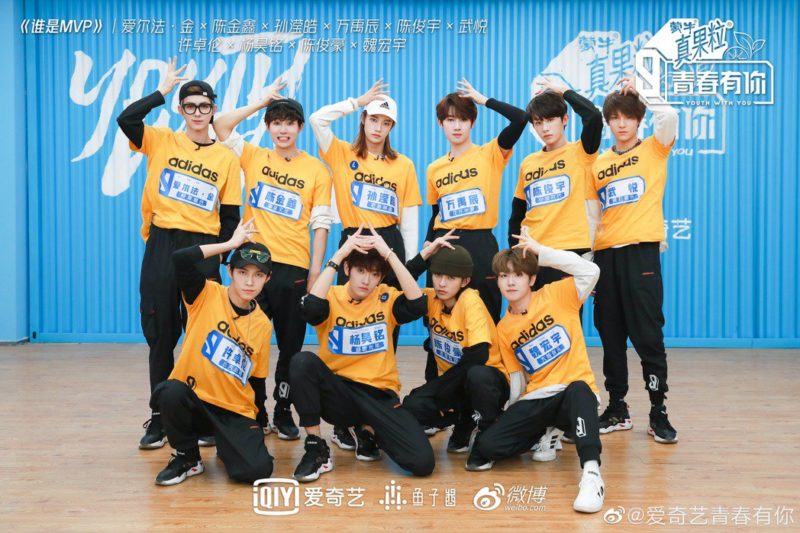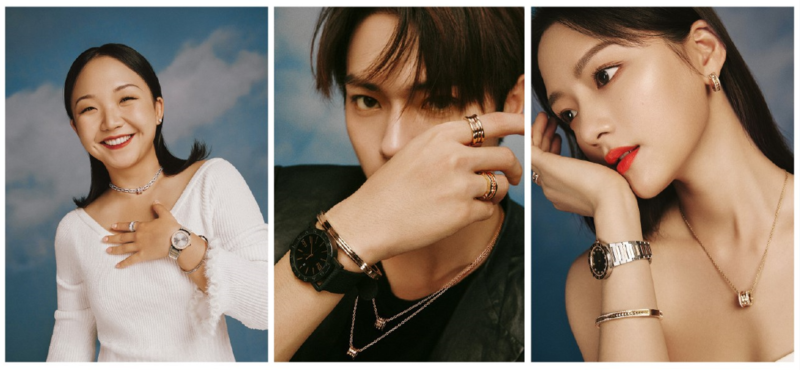Despite the recent scandals involving C-pop idols, such as Kris Wu’s arrest on suspicion of rape and Zhang Zhehan’s fall after taking a selfie in a sensitive place, celebrity endorsements in China remain a key tool to create buzz and engage with the public. Indeed, C-pop ambassadors can undoubtedly give a great boost to luxury brands’ growth and help them to catch young Chinese consumers’ attention. However, China’s peculiar fan culture, as well as government’s attempt to limit the excesses of both pop stars and their fandom could turn celebrity endorsements in China into a double-edged sword.
The idol economy in China
In 2019, the idol economy in China was worth nearly 64 billion RMB, boasting a 35% year-on-year rise. Fans spent about 33 billion RMB to purchase products with the aim to support their idols. In fact, fan communities in China consider fostering their favorite celebrity’s commercial business as a sign of loyalty and a concrete way to help them.
Knowing C-pop fans’ extreme ways of showing their devotion, brands are well aware that celebrity endorsements in China can be very profitable. Nevertheless, not all that glitters is gold. In May 2021, videos depicting several people pouring drinkable yogurt away in order to get the QR code they needed to vote for their favorite contestant in the talent show Youth for You 3 sparked a heated discussion among Chinese netizens. As a result, the TV show got canceled for breaching the Clean Plate campaign and the dairy company had to apologize for the incident.

The risks of hiring “traffic stars”
Over-relying on Chinese celebrity endorsements can have many drawbacks. Chinese idol economy tends to generate temporary hype: fans’ loyalty does not last forever, since interest in C-pop celebrities can be very fleeting and fans could move to the next idol very soon. Moreover, the symbiotic relationship among celebrities and their fanbase implies that the former risks to become a target for the excesses of their fandom. This is exactly what happened to Chinese actor Xiao Zhan. When some of his fans reported the anime and comic subculture platform Archive of Our Own and the fun fiction platform Lofter for using their idol image in homoerotic content, Chinese cyber police took down the two websites triggering the retaliation of their users. Indeed, the communities of the two platforms started boycotting all Xiao Zhan-promoted brands and tried to induce them to cut ties with him.
The Beautiful and Damned
Crazed fandoms are not the only potential threat coming from celebrity endorsements in China: the idols themselves can damage promoted brands by adopting a questionable attitude. Rape allegations against Chinese celebrity and former K-pop group EXO member Kris Wu illustrate this kind of problem very well. In order to avoid involving in the scandal, several brands, such as Louis Vuitton, Porsche and Bulgari, terminated their contract with the Chinese star and just one day after his arrest, major Chinese platforms deleted his social media accounts and some of his songs.
Both Chinese government and the Chinese public are sick and tired of unethical behavior in the entertainment industry, and the streaming platform Mango TV asked over 80 actors to sign a letter of commitment to avoid inappropriate behavior. The huge success gained by FILA’s new campaign “Conversation” about who are the idols of our time reflects Chinese audience growing interest and discordance about what kind of person is worth of admiration today.

How brands can minimize risk in Chinese celebrity endorsements
Although celebrity endorsements in China often lead to impressive sales growth, it is essential for brands remaining vigilant and monitor consumer opinion.
In light of recent events, brands are opting for prevention strategies aimed at minimizing the risks inherent in celebrity endorsements in China. Hiring metahumans may be an effective way to avoid scandals that could damage brand reputation. Virtual KOLs are much more versatile, cheaper and more reliable than their flesh-and-blood counterparts are. For instance, in June, Paris-based cosmetic brand Guerlain invited the metahuman KOL AYAYI to join its event in Shanghai, attracting a lot of attention and becoming one of the few brand collaborations with digital human.
Other luxury names, instead, avoid putting all their eggs in one basket and diversify their celebrity portfolio in order to cut over-reliance on “traffic stars” and spread the risk brought about by celebrity scandals and fan controversies. Being more selective in choosing brand ambassadors and paying greater attention to indemnity agreements when signing the partnership contract is another useful way to curb risks and contain potential damages coming from idol endorsements in China.
What to do when your celebrity endorsement gets cancelled: examples from Prada and Bulgari
Response to scandals needs to be prompt and immediate, since hesitation could cast a negative light on the brand image. Thus, it is important to be ready for potential PR crisis.
When Zheng Shuang got embroiled in a surrogacy and child abandonment scandal, Italian luxury brand Prada had to act swiftly and publicly cut ties with the actress, despite having signed an endorsement partnership with her just one week before the controversy. Any hesitation could have passed off as a questioning of Chinese family values. Through its prompt response, the Italian fashion maison proved having a clear understanding of the potential implications. However, Prada did not stop establishing partnerships with “traffic stars” and, for this year’s Qixi campaign, it opted for collaborating with Chinese singer Cai Xukun. At the same time, similarly to other luxury brands, the Italian luxury brand began to build ties with K-pop idols in an attempt to surf the Korean wave and capture both Chinese and international audience.
After terminating its contract with the previous brand ambassador Kris Wu, Italian luxury jewelry house Bulgari became much more cautious in its celebrity endorsement strategy in China. For the launch of its new B.zero1 Rock collection, the brand decided to diversify its star portfolio. Beyond Chinese “traffic stars,” such as actor Xu Kai and singer Fan Chengcheng, Lisa from the K-pop girl group Blackpink is one of the new brand ambassadors for the Bulgari new campaign as well. Nevertheless, according to Chinese netizens, the most impressive addition was Chinese female comedian Lamu Yangzi, who differs from Chinese archetypical idol and allowed the jewelry house to win the heart of a wider variety of consumers.

Benefits and risks of Chinese celebrity endorsements
- Celebrity endorsements can trigger a tremendous boost to sales; however, fan controversies and celebrity scandals can easily damage brand reputation. Therefore, companies cannot afford to be complacent and must adopt all measures necessary to either prevent or react to potential crisis.
- In some cases, a slow response and hesitancy to terminate the endorsement contract may even be interpreted as a disrespectful attitude towards Chinese culture and the Chinese public.
- After recent scandals, brands have begun to embrace some preventive strategies aimed at curbing risks inherent to celebrity endorsements. Relying on metahumans, diversifying their celebrity portfolio and adopting a more selective approach when choosing brand ambassadors have been the most common ones.
- Both Prada and Bulgari have seen their brand ambassadors involved in huge scandals and had to act swiftly to disassociate themselves from their partners’ unethical behaviors. Although both the Italian luxury brands kept on relying on “traffic stars” to engage with Chinese young consumers, they widened their idol portfolio and established ties with K-pop stars, so as to reach both Chinese and international public.





